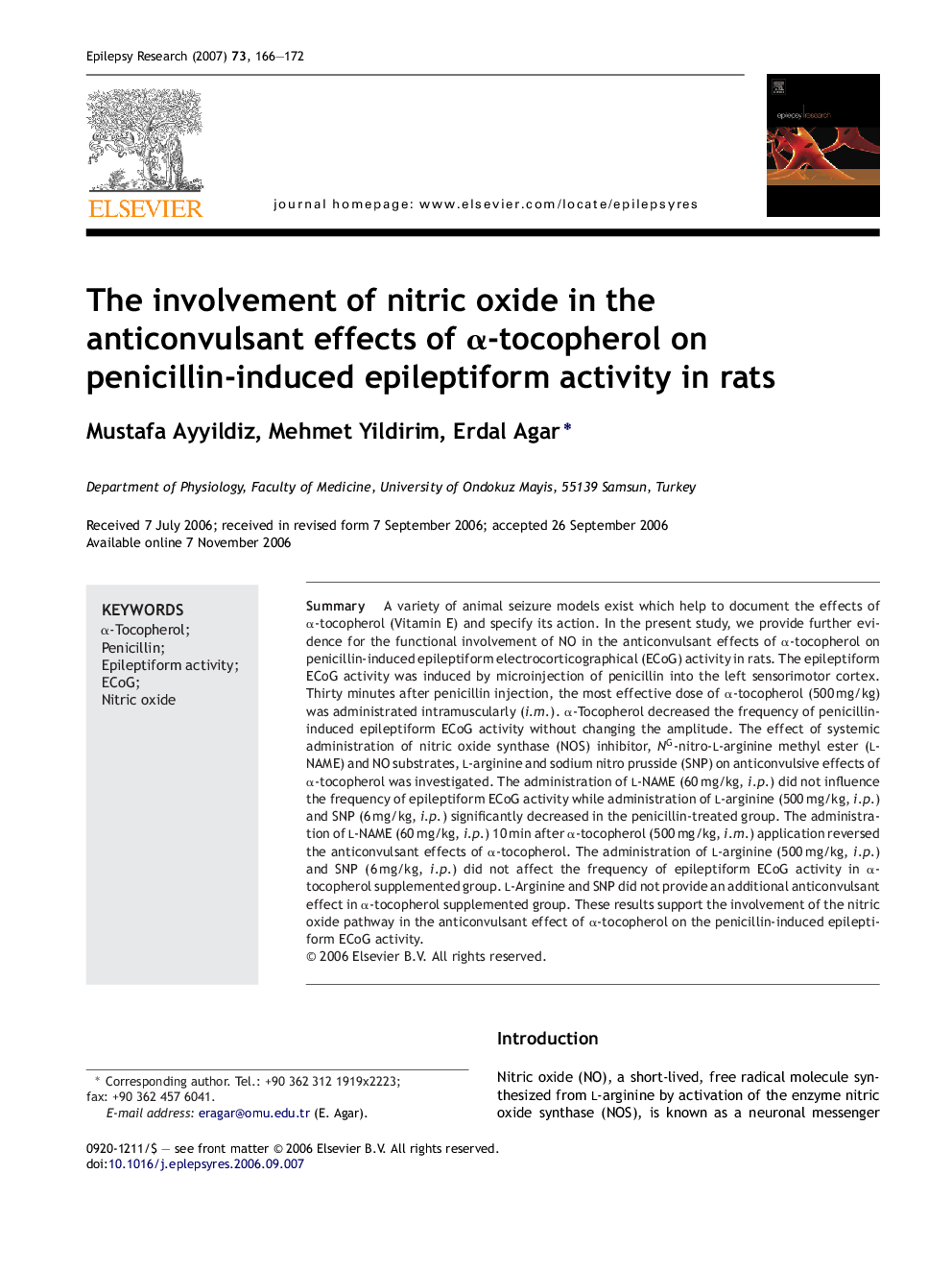| Article ID | Journal | Published Year | Pages | File Type |
|---|---|---|---|---|
| 3053195 | Epilepsy Research | 2007 | 7 Pages |
SummaryA variety of animal seizure models exist which help to document the effects of α-tocopherol (Vitamin E) and specify its action. In the present study, we provide further evidence for the functional involvement of NO in the anticonvulsant effects of α-tocopherol on penicillin-induced epileptiform electrocorticographical (ECoG) activity in rats. The epileptiform ECoG activity was induced by microinjection of penicillin into the left sensorimotor cortex. Thirty minutes after penicillin injection, the most effective dose of α-tocopherol (500 mg/kg) was administrated intramuscularly (i.m.). α-Tocopherol decreased the frequency of penicillin-induced epileptiform ECoG activity without changing the amplitude. The effect of systemic administration of nitric oxide synthase (NOS) inhibitor, NG-nitro-l-arginine methyl ester (l-NAME) and NO substrates, l-arginine and sodium nitro prusside (SNP) on anticonvulsive effects of α-tocopherol was investigated. The administration of l-NAME (60 mg/kg, i.p.) did not influence the frequency of epileptiform ECoG activity while administration of l-arginine (500 mg/kg, i.p.) and SNP (6 mg/kg, i.p.) significantly decreased in the penicillin-treated group. The administration of l-NAME (60 mg/kg, i.p.) 10 min after α-tocopherol (500 mg/kg, i.m.) application reversed the anticonvulsant effects of α-tocopherol. The administration of l-arginine (500 mg/kg, i.p.) and SNP (6 mg/kg, i.p.) did not affect the frequency of epileptiform ECoG activity in α-tocopherol supplemented group. l-Arginine and SNP did not provide an additional anticonvulsant effect in α-tocopherol supplemented group. These results support the involvement of the nitric oxide pathway in the anticonvulsant effect of α-tocopherol on the penicillin-induced epileptiform ECoG activity.
